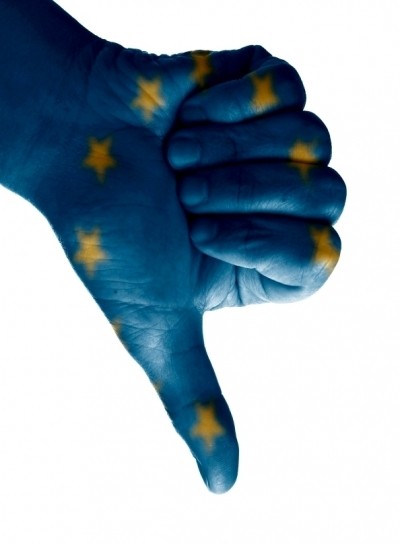Health claim rules gag freedom of speech, says EU lobby group
The ANH statement comes soon after the October 1 publication of about 500 health claim opinions by the European Food Safety Authority (EFSA) which stunned industry with a 70 per cent failure rate.
Not a single botanical or probiotic claim drew a positive opinion, a situation that has industry groups reeling, so much so that none of the major bodies has yet produced an official response while they process the fall-out.
Deep and meaningful
The ANH statement, headed by its executive and scientific director, Dr Robert Verkerk, said the time had come for a call-to-action.
“I don’t believe the food and supplement industry, or scientists, can accept a good number of these opinions lying down,” he said. “It is time to begin deep and meaningful scientifically-based negotiations.”
The ANH said the scientific stance being taken by EFSA added up to a gagging of free speech, one that could become a commercial reality by the middle of next year for at least some products.
“The Regulation is designed to protect the interests of consumers. It's meant to stop them being fed a diet of misleading misinformation,” he said.
“While it cannot be denied the food and supplement industry has entertained its fair share of cowboys, our concern is that the regulation goes so far as to throw the baby out with the bathwater. At the very point in time when consumers need most information to help them make the right food and supplement choices to help them offset largely preventable chronic diseases, we see the industry being gagged.”
“We regard this regulation as probably the greatest infringement of freedom of speech to impact the health food industry anywhere in the world.”
The group warned that the 2006 EU nutrition and health claims regulation could be exported around the world and noted the Codex Alimentarius Commission, the World Health Organization (WHO) body that recommends food codes internationally, favoured the European system.
“We feel that, in time, once the full impact of the EU Regulation is felt in the EU—in 2011 and after—legal challenges centering on the infringement on our fundamental rights and freedoms may become a necessity,” Verkerk said.
“But getting such challenges off the ground will ultimately depend on the will of the industry—and the will of consumers.”
Big health claims brother?
Verkerk noted that the majority of positive opinions from the October 1 batch of 523 were in relation to vitamins and minerals backed by well-documented, human studies.
But other nutrients such as joint health offerings glucosamine and chondroitin and energy drink staple, taurine, were found not to demonstrate causality, something the ANH said was akin to the difficulty in establishing links between smoking and lung cancer (it took decades before scientific backing was widely accepted.)
“It’s the immensity of the impact of these opinions that is difficult to comprehend. We must remember that this new claims environment affects not only labels and supporting marketing material, but also the spoken word. Any health relationship that is not supported by EFSA will soon be banned, making any utterance or writing about such a relationship, when associated with a food or supplement product, an offence punishable by law.”
Verkerk said if the scientific criteria being employed by EFSA was applied to the pharmaceutical sector, the majority would fail to make it to market.
He said EFSA had also turned down health claims because of concerns over consumption levels even when it acknowledged the science demonstrated a health benefit such as the case of niacin and triglycerides.
In that case EFSA rejected the claim because it deemed it would encourage, “excess consumption of niacin and therefore does not comply with the criteria laid down in Regulation.”
ANH said it was confounded by EFSA logic in regard to opinions such as that reached for the tryptophan pre-cursor, 5-HTP, which regulates the hormone, serotonin, and has therefore been used in stress relief products.
EFSA said there was no benefit for ‘normal people’, noting an effect had only been demonstrated in stressed people. But the ANH said this was the target population as there was no need to regulate serotonin levels among ‘normal’ people.













